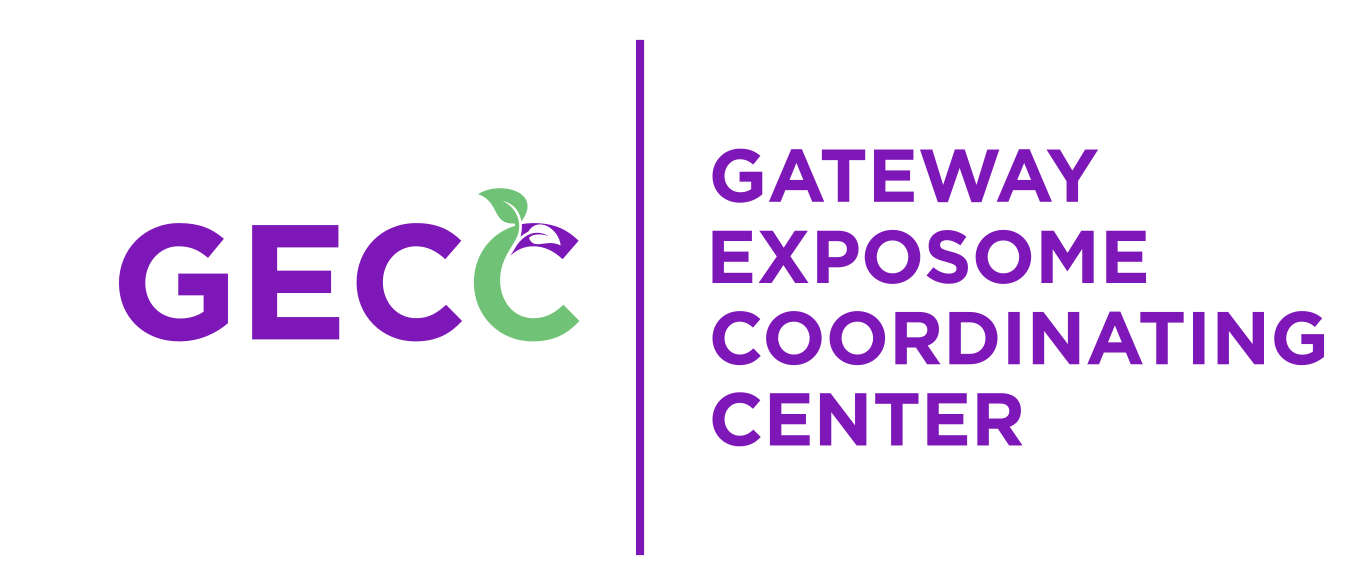

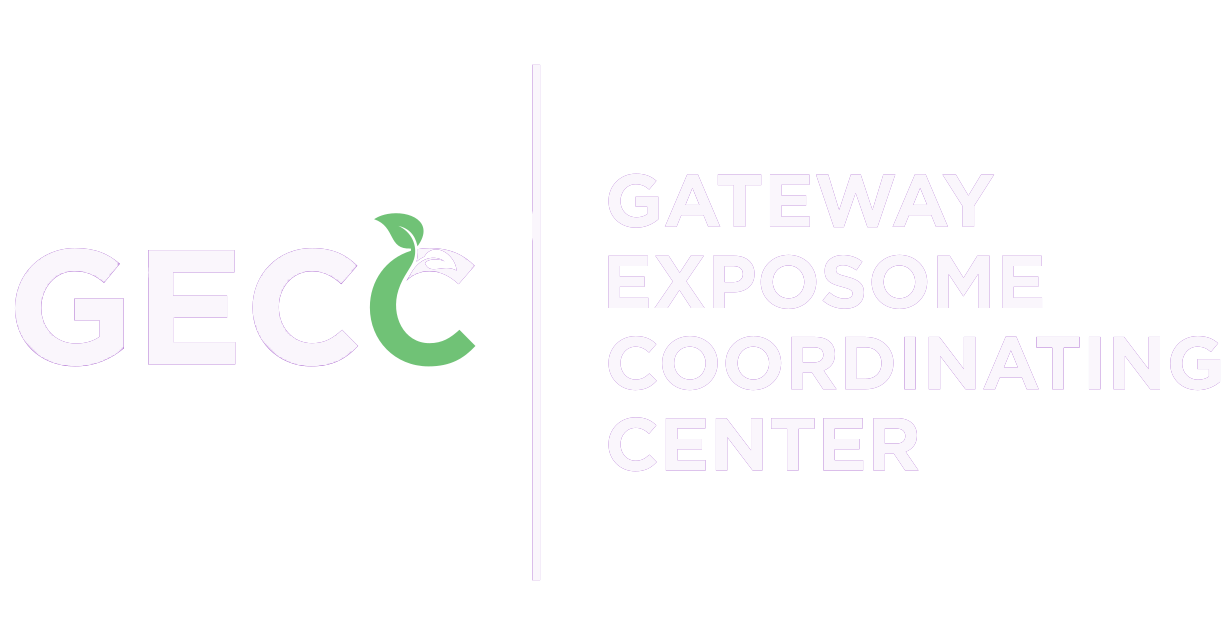
Advancing life course research on the AD/ADRD exposome

With an aging population, Alzheimer’s disease and related dementia (AD/ADRD) are becoming more common. What puts people at risk — and what helps people with dementia thrive — is important to us all. The dementia exposome refers to the sum of environments and experiences that shape brain health across the life course. These influences are complex — the GECC works to measure and understand them.
Alzheimer's & Dementia and the Gateway Exposome Coordinating Center invite submissions for a special issue dedicated to interdisciplinary research on the exposome and Alzheimer's Disease (AD) and AD-Related Dementias (ADRD) risk, resilience, and disparities.
Submissions open July 1, 2025. The submission deadline is December 31, 2025. Read more about the call for papers
Collaboration and consensus-building drives the GECC's approach and research activities, breaking down research silos.
The GECC aims to generate transportable, science-ready tools for exposome and AD/ADRD researchers.
By fostering access to better data tools and measures, the GECC advances our understanding of the AD/ADRD exposome.
The Gateway Exposome Coordinating Center (GECC) advances research on the various environmental exposures over the life course — known as the “exposome” — that affect Alzheimer’s Disease (AD) and AD-Related Dementias (ADRD) risk, resilience, and disparities. Currently, accessing and sharing exposome data among government agencies, researchers, advocacy groups, and businesses is challenging. The GECC aims to address these issues by facilitating collaboration and consensus-building across disciplines, and serving as a hub for collecting, organizing, and sharing exposome data for AD/ADRD research. We concentrate on six main domains: extreme weather, physical environment, social environment, policy environment, community services environment, and life experiences. By creating a collaborative platform across these focuses, we help improve knowledge and understanding of AD/ADRD, which can drive policy changes and provide better data for future research. The GECC is funded by the National Institute on Aging. Our interdisciplinary team is based at the Center for Economic and Social Research, the University of Southern California and the University of Michigan.

Jinkook Lee
University of Southern California
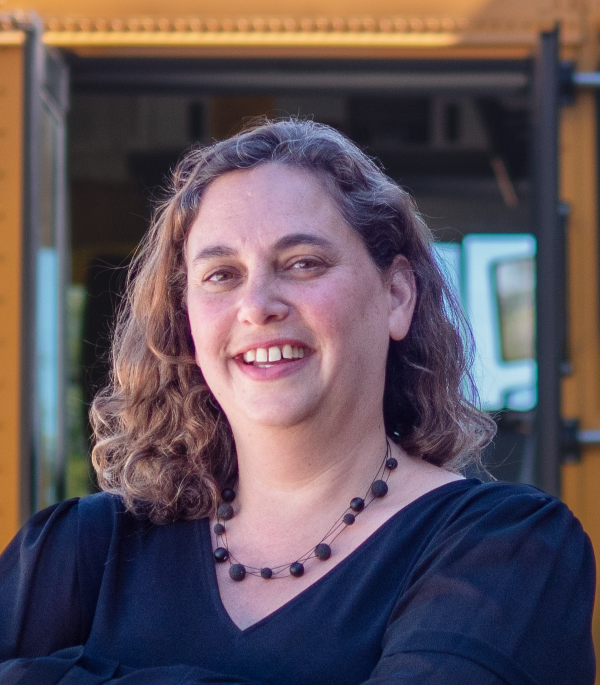
Sara Adar
University of Michigan School of Public Health

David Knapp
University of Southern California

Kathleen Cagney
University of Michigan

Bryan Hubbell
Former EPA National Program Director
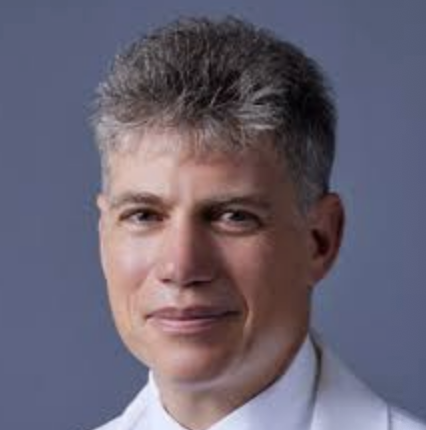
Sean Morrison
Mount Sinai New York

Jennifer Manly
Columbia University

Bhramar Mukherjee
Yale University
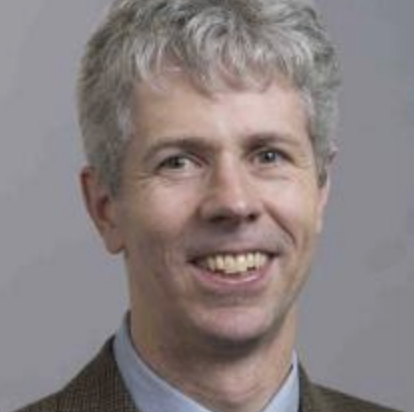
William Dow
University of California Berkeley

Maya Fransz-Myers
University of Southern California
Center Coordinator
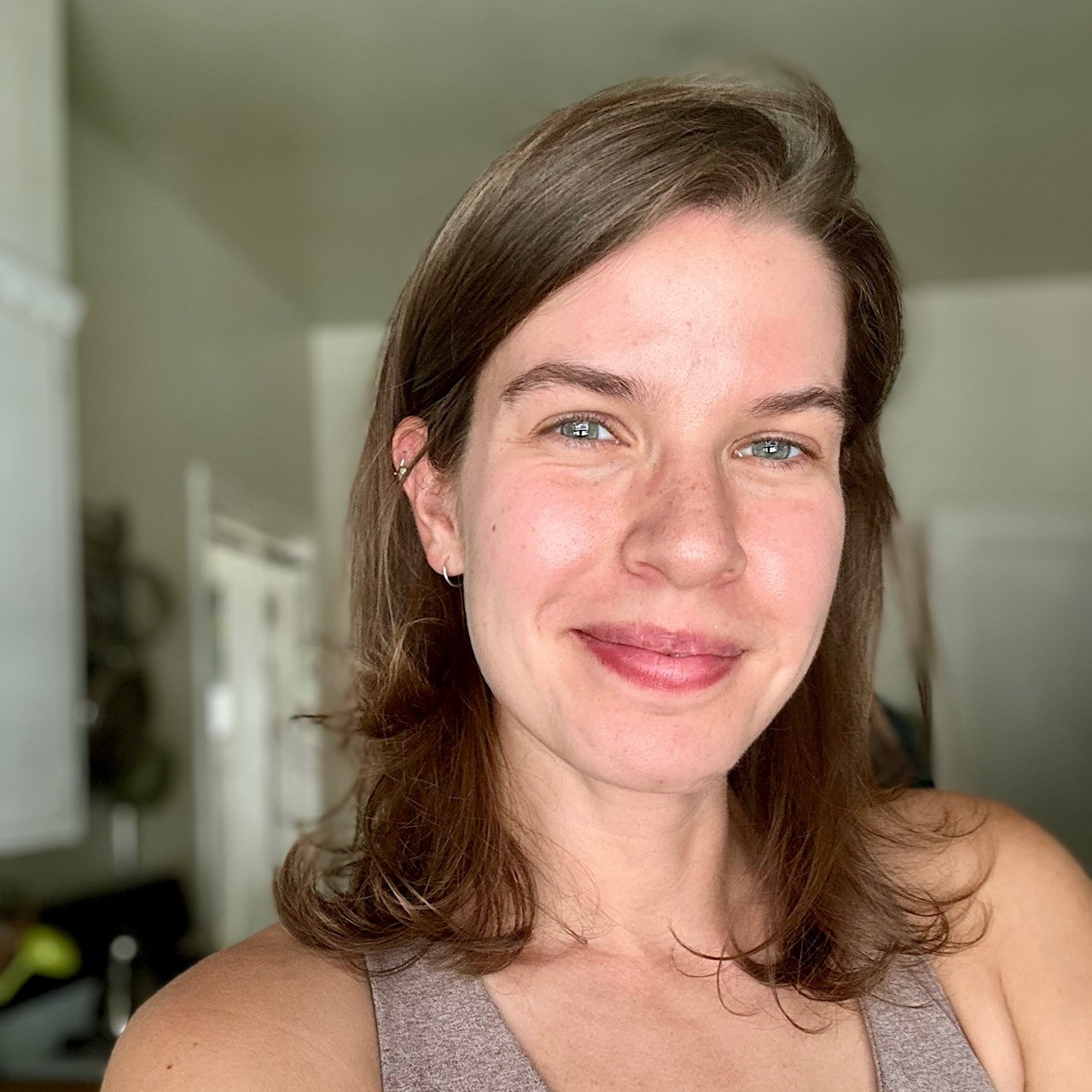
Ava Bindas
University of Southern California
Communications Coordinator

McKayla Wenner
University of Southern California
Policy and Community Services Environment Domain Coordinator

Eden Wetzel
University of Southern California
Life Experiences Domain and Methods Domain Coordinator
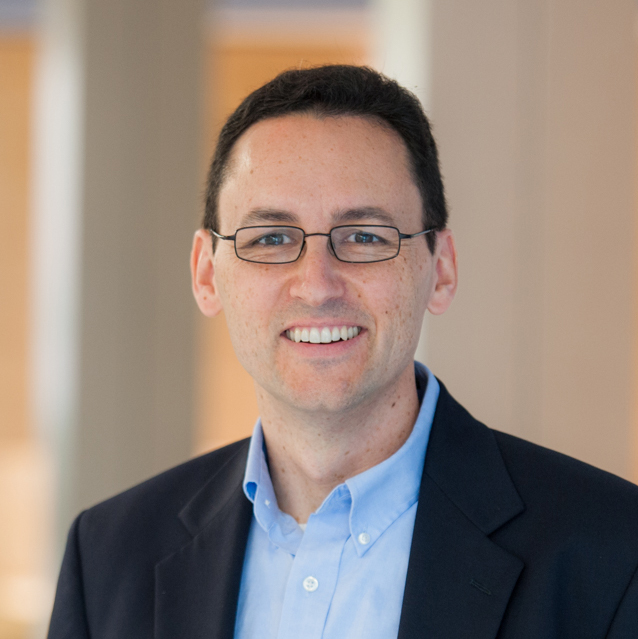
Gregory Wellenius
Boston University
Extreme Weather Domain Lead

Michael Brauer
University of British Columbia
Physical Environment Domain Co-Lead
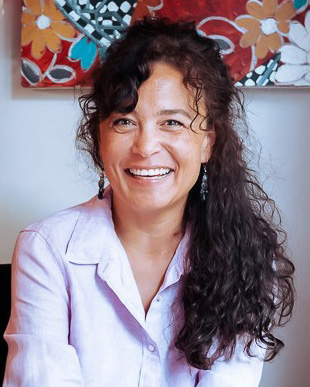
Margaret Hicken
University of Michigan
Social Environment Domain Co-Lead

HwaJung Choi
University of Michigan
Community Services Domain Co-Lead

David Van Riper
University of Minnesota
Community Services Domain Co-Lead
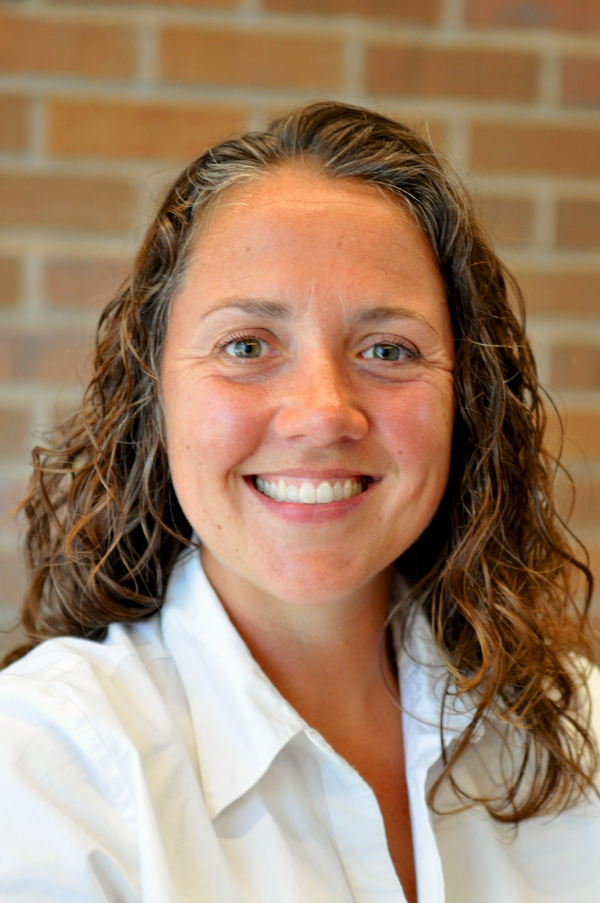
Sarah Flood
University of Minnesota
Life Experiences Domain Lead
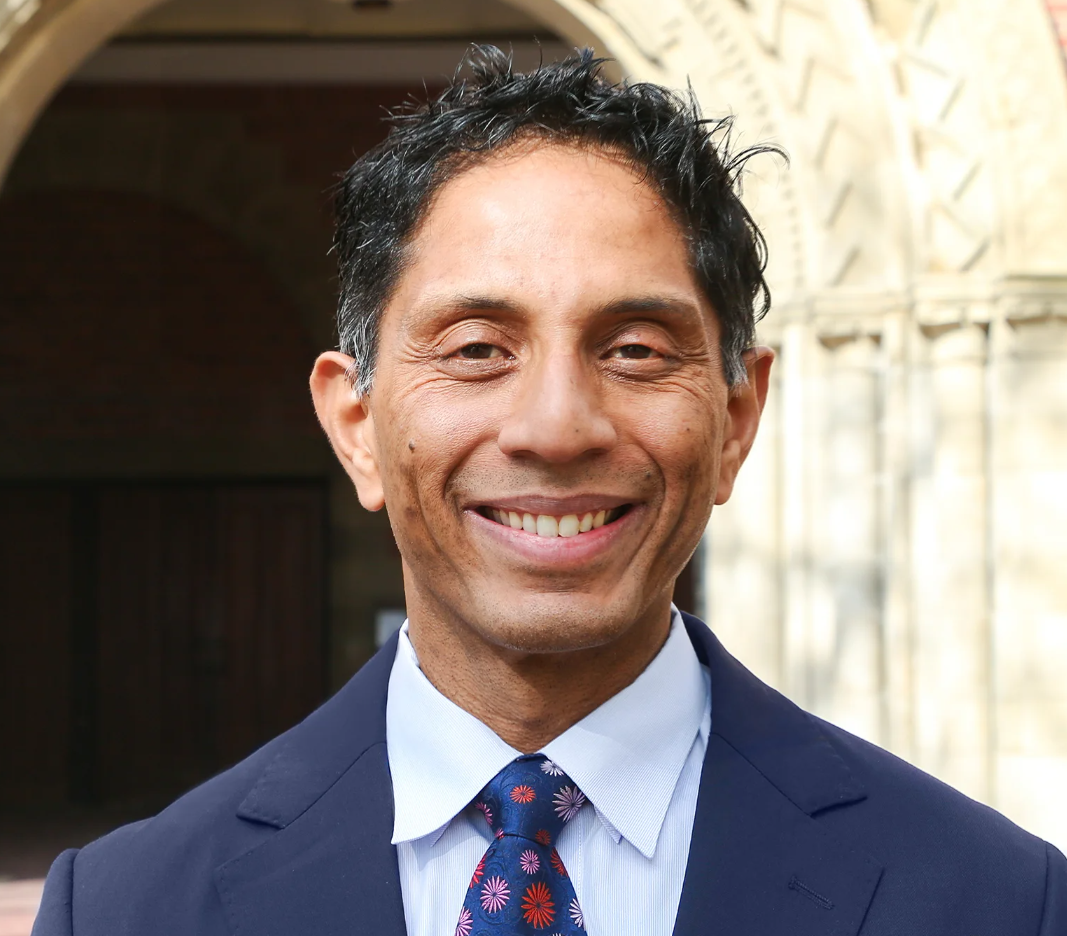
Shrikanth Narayanan
University of Southern California
Industry Liaison
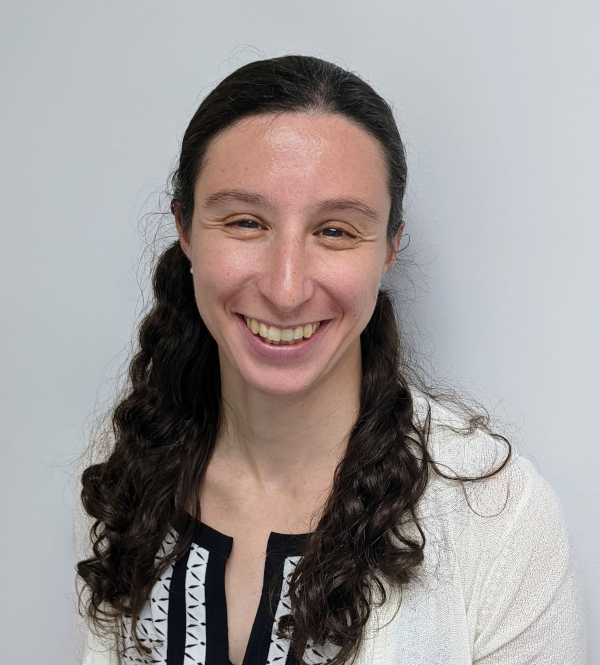
Emma Nichols
University of Southern California
Methods Lead

Bas Weerman
University of Southern California
IT Director

Lorna Thorpe
NYU Grossman School of Medicine
Dissemination Co-Lead
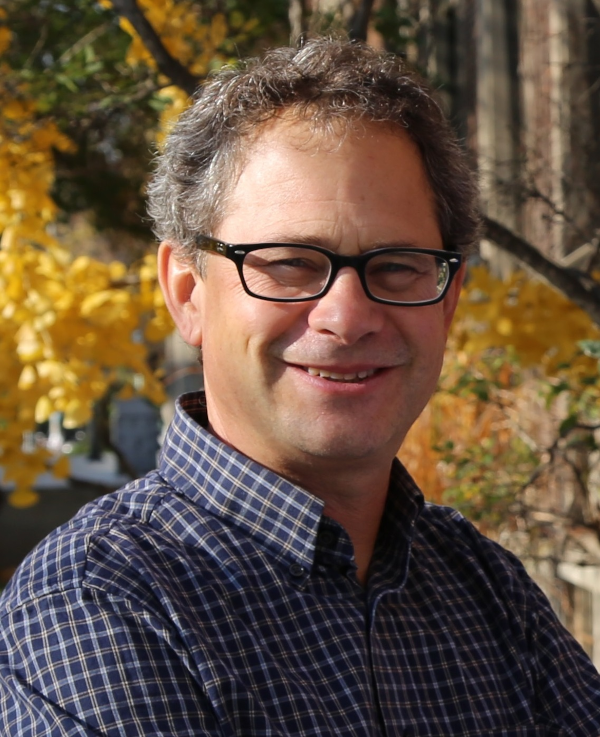
Jeffrey Brook
University of Toronto
Physical Environment Domain Co-Lead

Kevin Lane
Boston University
Extreme Weather Domain Co-Lead
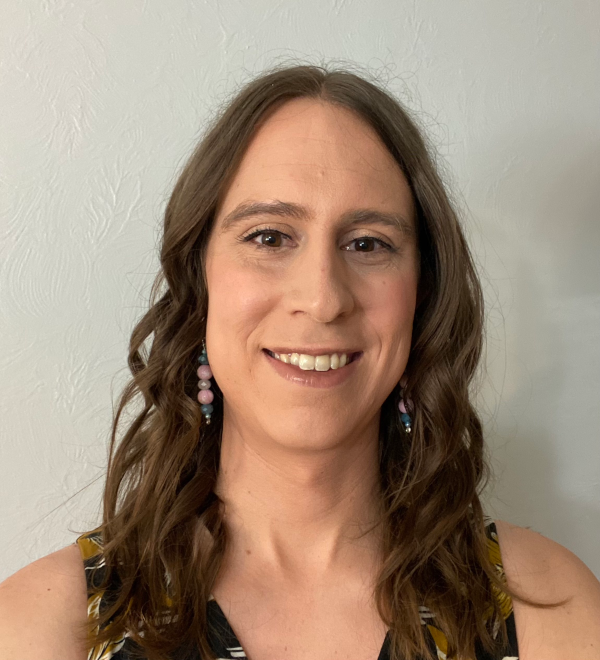
Kayleigh Keller
Colorado State University

Erik Meijer
University of Southern California
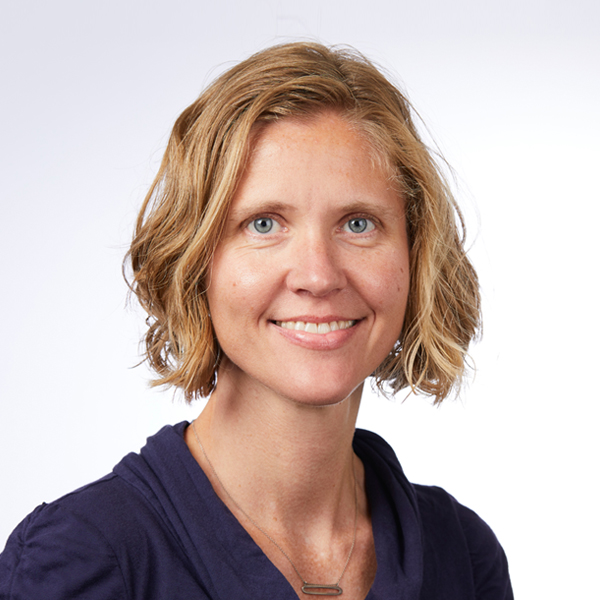
Birgit G. Claus Henn
Boston University

Yao-Yi Chiang
University of Minnesota

Lucy Hutyra
Boston University
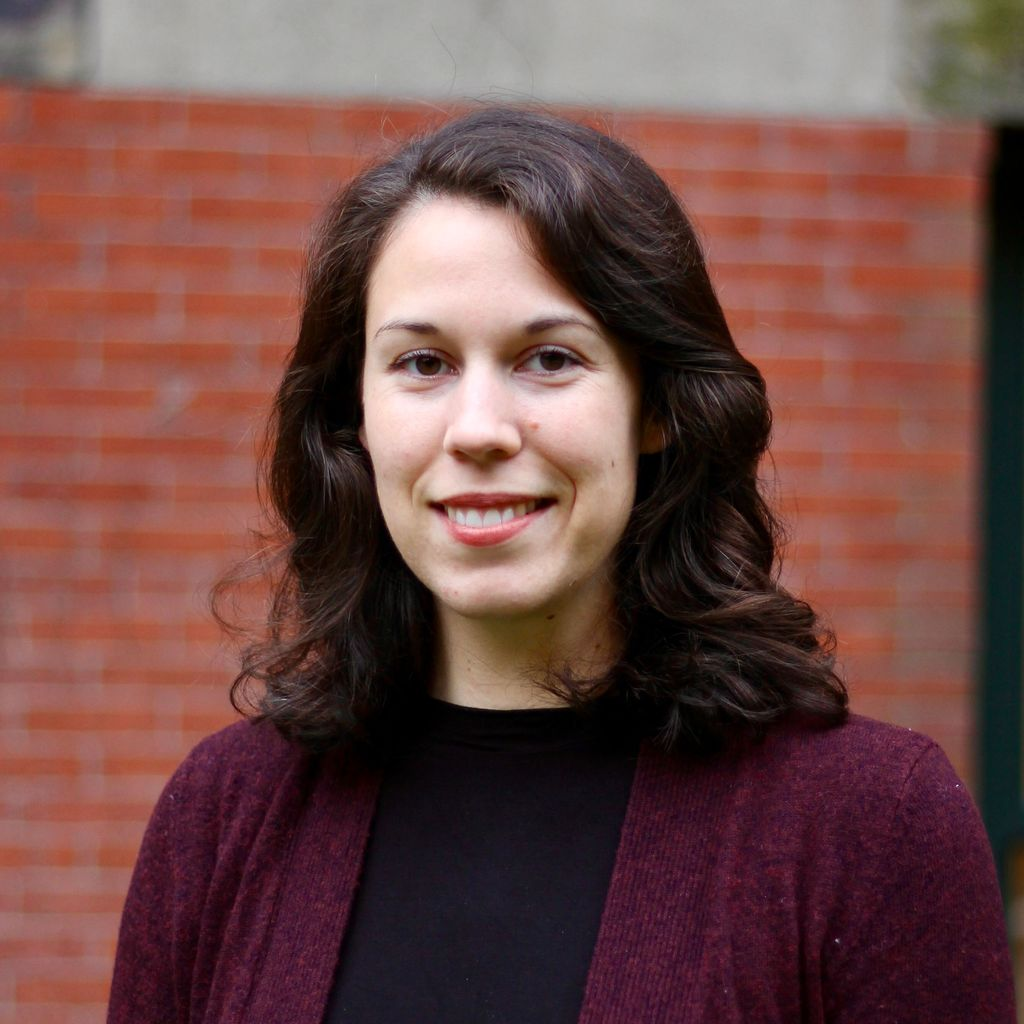
Emma Gause
Boston University
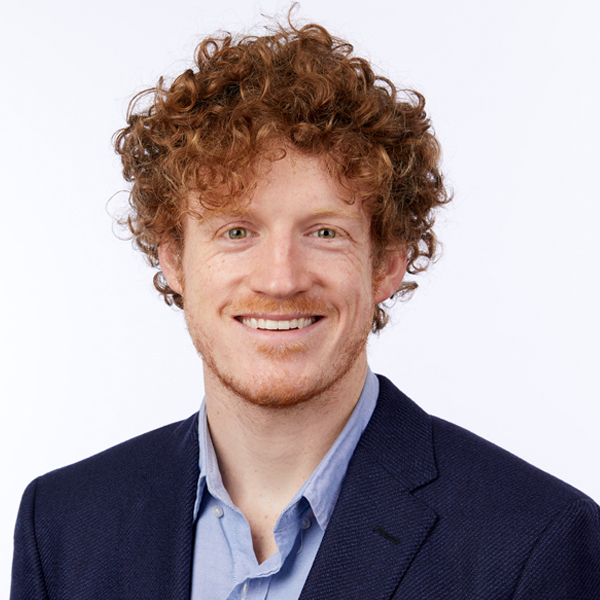
Chad Milando
Boston University

Kevin Lane
Boston University

Dany Doiron
University of Montreal

Clémence Kieny
University of Lausanne

Ben Spoer
NYU Grossman School of Medicine

Mauricio Avendano
University of Lausanne

Marc Gourevitch
NYU Grossman School of Medicine
Dissemination Co-Lead

Tom Luben
University of Michigan
Scientist
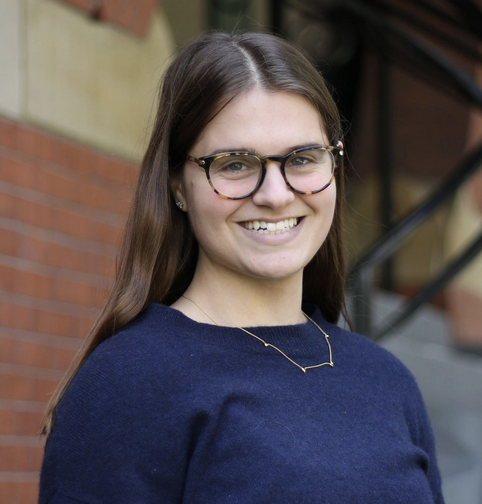
Allison James
Boston University
Research Fellow
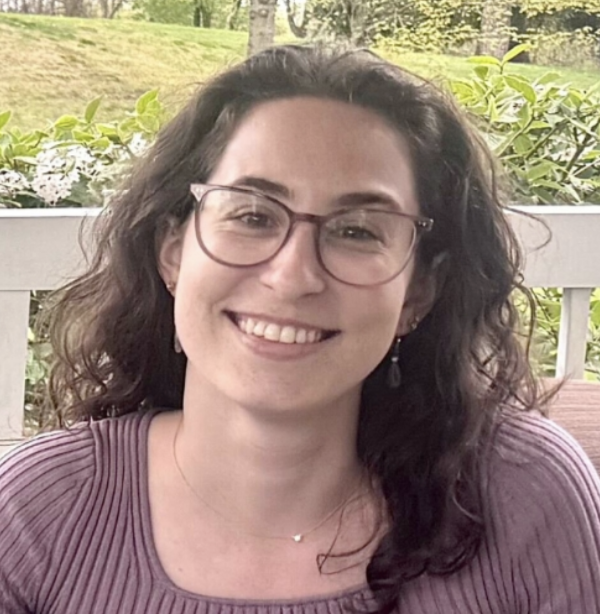
Talia Feldscher
Boston University
Research Fellow
To achieve these aims and advance lifecourse research on the AD/ADRD exposome, the GECC serves as a centralized hub for accessing, harmonizing, linking, and sharing exposome data for AD/ADRD researchers across disciplines, with a focus on six key, interconnected domains:

Extreme Weather

Physical Environment
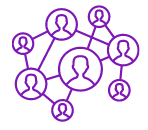
Social Environment

Policy Environment

Community Services Environment

Life Experiences

Methods

Dissemination
Although each domain has unique goals and outputs, all domains advance AD/ADRD exposome research in their fields by inclusively and transparently establishing consensus on high priority research topics, developing standards for data collection, and carrying out novel data collection for key exposome measures.
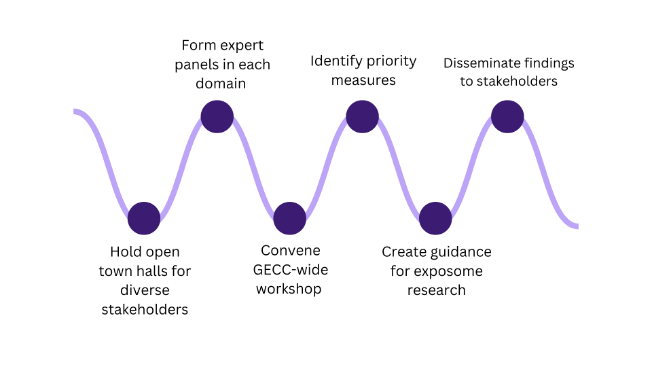
Advancements in each domain will drive ongoing cooperative efforts. Domain experts and the core teams will continue to meet regularly to discuss progress towards these goals and share their findings. The GECC will host additional town halls, workshops, and expert panels to publicize and circulate new domain-specific knowledge, improved measures, and enhanced policies for exposome data collection and sharing.
Given the diversity of environmental exposures over the life course, cross-disciplinary collaboration and expertise is critical. The GECC focuses on six key, interconnected domains: extreme weather, physical environment, social environment, policy environment, community services environment, and life experiences, as well as two core teams dedicated to methodological issues and dissemination.
 Extreme Weather
Extreme Weather
The extreme weather domain considers the impacts of a wide range of relevant hazards on healthy aging, including rising outdoor temperatures and risks posed by smoke from wildfires, flooding, episodes of extreme heat, and other extreme weather events. This is an important area of focus since extreme weather is rapidly changing and weather events have been associated with higher rates of death and healthcare utilization among the general population, but especially those with dementia. Older adults with poorer cognition are particularly vulnerable to extreme weather events and stressors since they are often less mobile, are on a fixed income, may be taking medications that interfere with thermoregulation, and have chronic diseases. Extreme weather hazards can vary dramatically across individuals for reasons including age, occupation, and living conditions. Therefore, activities focused on extreme weather mitigation, adaptation, and resilience can profoundly impact the health of people with cognitive declines and dementia. The Extreme weather domain is led by Dr. Gregory Wellenius (Boston University).
 Physical Environment
Physical Environment
The natural and built environment where we live, work, exercise, and socialize can have important influences on health. Some features of the physical environment can be harmful to health like air pollution and noise. Yet, other aspects like visibility of trees and lakes or access to transportation, parks, benches, restrooms, and safe communities can improve health. Since much of the physical environment can be modified, this is a critical area of importance to reduce the risks of dementia or improve the well-being of those with dementia. The Physical Environment domain is co-led by Dr. Jeffrey Brook (University of Toronto) and Dr. Michael Brauer (University of British Columbia).
 Policy Environment
Policy Environment
The policy domain covers a broad scope of government policies that influence key determinants of AD/ADRD outcomes throughout life. This may include public health policies targeting dementia prevention (e.g., tobacco and alcohol control policies, nutritional labelling and food policies, urban design and walkability policies); health and long-term care policies (e.g., home-based care programs, institutional long-term care, caregiving support policies, end-of-life and palliative care policies); physical environmental policy (e.g., air quality and pollution control, noise pollution reduction, access to green spaces), and social policies (e.g., education policy, employment and workplace policies, social inclusion policies, income security and protection). Given this wide range of influential policies, variations across jurisdictions and time periods serve as natural experiments, allowing researchers to study how different policies affect AD/ADRD risk factors, and ultimately informing more targeted and effective interventions. To make progress in this domain, the GECC focuses on three main aims: reaching consensus on key policies affecting AD/ADRD outcomes, developing standardized methods for policy data collection, and creating robust analytical approaches to examine policy variations across temporal and spatial dimensions. The Policy Environment domain is led by Prof. Mauricio Avendano (University of Lausanne).
 Community Services Environment
Community Services Environment
The community services domain focuses on care and support systems, including healthcare, long-term care, senior services, and emergency preparedness. These services significantly influence AD/ADRD risks, care, and resilience for individuals and populations, while also moderating the impacts of other domains. Research in this domain focuses on developing frameworks and innovative methods for measuring the availability and accessibility of diverse services, going beyond mere presence to assess their quality, quantity, and access. This comprehensive approach aims to deepen our understanding of how community services impact AD/ADRD outcomes, providing crucial insights for developing effective interventions to mitigate disparities and improve quality of care. The Community Services Environment domain is co-led by Dr. HwaJung Choi (University of Michigan) and Mr. David Van Riper (University of Minnesota).
 Life Experiences
Life Experiences
The life experiences domain explores how a range of experiences – from well-studied categories like education and caregiving, to less-studied aspects such as migration, stress and day-to-day experiences – shape health and well-being across the lifespan and relate to AD/ADRD outcomes. Primarily focused on individual and family level experiences, this domain employs novel approaches to understanding these occurrences across space and time. For example, time-related research in this domain examines how the cumulative effects of life experiences differ from isolated risk factors, takes into account how certain experiences have different impacts over time, and considers how the duration of an important life experience or when it occurs in the life course changes its import. This domain also intersects with the social environment, policy landscape, and community services domains to provide a holistic understanding of how various life experiences influence health and wellbeing as individuals and populations age. The Life Experiences domain is co-led by Dr. Sarah Flood (University of Minnesota) and Dr. Shrikanth Narayanan (University of Southern California).
 Methods
Methods
The methods core tackles cross-domain methodological challenges focused on measuring exposures and their associations with AD/ADRD outcomes. Topics of interest to the methods group include methods and approaches for summarizing and analyzing high-dimensional and complex exposome data, including index construction methods, the application of mixture methods to jointly model combinations of exposures, and the use of machine learning methods to capture complex interplay between different exposome components. The group will also tackle challenges related to consideration of life course data on exposures from birth and early childhood to late life, developing and discussing common approaches to understand and evaluate sensitive periods and cumulative exposures across time. Additionally, the methods core will consider topics focused on minimizing bias in causal analyses of the exposome and AD/ADRD outcomes, including the incorporation and consideration of measurement error, selection bias in studies of older adults, and evidence triangulation and synthesis. By tackling high-priority challenges relevant to multiple domains, the methods core will provide crucial insights to guide measure construction and subsequent analytic projects across the coordinating center. The methods core is led by Dr. Emma Nichols (University of Southern California).
 Dissemination
Dissemination
The dissemination team leverages and expands an existing network of outreach partners to distribute GECC-developed resources to a diverse array of AD/ADRD stakeholders. Collaborating with different domains, the team will produce, publish, and publicize materials like research briefs, infographics, and lay summaries of GECC activities. These resources will be crafted for clarity and accessibility, catering to the needs of both policymakers and researchers in adjacent disciplines. The dissemination core is co-led by Dr. Lorna Thorpe (NYU Grossman School of Medicine) and Dr. Marc Gourevitch (NYU Grossman School of Medicine).
The Community Services domain focuses on care and support systems, including healthcare, care services, senior services, and emergency preparedness. Research in this domain focuses on developing frameworks and innovative methods for measuring the availability and accessibility of community services, going beyond mere presence to assess their quality, quantity, and access.
Safety and emergency services contribute to the surveillance, preparedness, and responsiveness to natural and human-made disasters, such as fire, floods, or infectious disease outbreaks. By alerting about and responding promptly to hazardous environments and incidents, these services may protect people from being exposed to dangerous conditions that may contribute to cognitive decline. The availability of safety and emergency services may help improve the safety of individuals with a high risk of dementia who are more vulnerable to the adverse environment and require additional support.
Medical care services play a critical role in preventing or delaying cognitive decline and dementia by providing treatment for underlying risk factors. Better access to medical care resources such as hospitals, clinics, physicians, and nurses in one’s community may contribute to the early detection and treatment of dementia risks through increased utilization of medical services. Home- and community-based care services are provided by family, home health aides, adult day services, respite care, and post-acute care facilities; access to such services may reduce risks of dementia and promote resilience to cognitive decline.
Social support and engagement promote better cognitive function. Senior and civic services include activities that facilitate social support and engagement, such as community gardening, exercise programs, meal delivery, and financial management. Support provided by these services contributes to lowering dementia risk with cognitive stimulations and to resilience for people with a high risk of dementia while they manage challenges related to functional decline.
In the fall of 2024, the GECC hosted a series of town hall meetings with hundreds of unique participants. These meetings yielded critical insights for the Community Services domain, including highlighting key themes and gaps in research.
Key Themes
Gaps in Research
To address these priorities and facilitate a better understanding of the relationship between the exposome and AD/ADRD outcomes, the Community Services domain will leverage existing measures as well as develop novel measures.
Short-Term Priorities
Long-Term Priorities

HwaJung Choi
University of Michigan
Domain Co-Lead

David Van Riper
University of Minnesota
Domain Co-Lead

Bona Park
University of Michigan
Research Coordinator
The Policy Environment domain explores how government policies influence key determinants of brain health across the life course. This work focuses on several key policy areas, including education policies that affect early cognitive development and lifelong learning; public health measures that affect health behaviors; physical environment policies that shape exposure to risk factors; income and benefit programs for older adults; mental health policies that address depression and access to mental health care across the life-course; and health system policies that govern how healthcare is delivered and financed. Although the focus is on US policies, there are cases in which policies from other countries can be used to understand the impact of policies on cognitive function and dementia. Studying variations in policies across jurisdictions (e.g., US states, countries, regions) and over time enable researchers to assess their impact on AD/ADRD risk factors and outcomes.
To advance this work, the Policy Environment domain focuses on identifying understudied policies, developing standardized and cutting-edge methods for policy data collection and harmonization, and creating robust analytical approaches to evaluate policy effects on dementia outcomes. The Policy Environment domain engages with policy across six main areas:
Education policies—such as those governing compulsory schooling, early childhood education, and access to adult learning—play a critical role in shaping cognitive development and resilience across the life course. Higher levels of educational attainment are consistently linked to better cognitive function in later life and a lower risk of dementia. Policies that extend years of schooling, select students into different educational tacks, or promote adult literacy and lifelong learning opportunities may impact cognitive function and brain health outcomes later in life.
Public health policies are essential tools in dementia prevention, as they influence key behavioral risk factors. Measures such as pricing strategies to reduce consumption of tobacco, alcohol, and unhealthy foods, along with initiatives that promote physical activity, can support healthier lifestyles. Likewise, policy initiatives that encourage physical activity can support healthier lifestyles. By shaping these behaviors, public policies can help reduce the risk of cognitive decline and promote long-term brain health.
Policies can shape physical exposures — such as air quality, pollution levels, and access to transportation — that are increasingly recognized as important for cognitive health. These exposures can affect brain development, cognitive function, and the progression of cognitive decline over time. By addressing these factors, policies may strengthen cognitive resilience and help reduce dementia risk over the life course.
Policies that govern access to income support based on age and/or income thresholds -such as retirement or non-contributory pension programmes- can influence work decisions, income security and, indirectly, social participation, all potential risk factors for cognitive decline and AD/ADRD. By influencing income security and participation in cognitively stimulating activities, these policies can influence cognitive health and dementia risk across the life course.
Mental health policies—such as laws that mandate insurance coverage for mental health services—can enhance access to care and ensure continuity of treatment. These policies are particularly relevant given that depression is a well-established modifiable risk factor for dementia. By supporting mental health throughout the life course, mental health policies may contribute to prevent cognitive decline and reduce overall dementia risk.
Health system policies encompass all of the decisions, plans, and actions taken by governments to shape the organization, financing, and delivery of healthcare services. These policies can play a key role in preventing or delaying the onset of dementia and influencing dementia outcomes. For example, structured entry points in healthcare systems may facilitate early diagnosis and care coordination, while insurance coverage policies may enhance access to treatment and support services. Health system policies also offer a valuable context for studying dementia prevention, enabling researchers to assess how specific features—such as scheduled preventive visits— contribute to prevent AD/ADRD.
In the fall of 2024, the GECC hosted a series of town hall meetings with hundreds of unique participants. These meetings yielded critical insights for the Policy Environment domain, including highlighting key themes and gaps in research.
Key Themes
Gaps in Research
To address these priorities and facilitate a better understanding of the relationship between the exposome and AD/ADRD outcomes, the Policy Environment domain will use existing measures as well as develop novel measures.
Our aim is to develop common standards and guidance for the collection, harmonization, documentation, archiving, and linking of data on policies for studying the causes of AD/ADRD, using rigorous scientific tools and methods for legal mapping and policy surveillance. Based on this guidance, measures of specific policies within each priority domain will be developed.

Mauricio Avendano
University of Lausanne
Domain Lead

Clémence Kieny
University of Lausanne
Postdoctoral Fellow

McKayla Wenner
University of Southern California
Domain Coordinator

Mathéo Bourgeois
University of Lausanne
Intern

Géraldine Marks Sultan
University of Lausanne
Domain Contributor
The Life Experiences domain explores how a range of experiences – from education and life events and changes, to caregiving, to the
stress from day-to-day experiences – shape health and well-being across the lifespan and contribute to AD/ADRD outcomes. Primarily
focused on individual and family level experiences, this domain employs novel approaches to understanding these occurrences across
space and time. For example, time-related research in this domain examines how the cumulative effects of life experiences differ from
isolated risk factors, takes into account how certain experiences have different impacts over time, and considers how the duration of an
important life experience or when it occurs in the life course changes its import.
The Life Experiences domain’s initial efforts will focus on work, health behaviors, family and social relationships, and data linkages.
The dynamics and characteristics of work – including skill requirements and working conditions – are central to individuals’ lives, and work-related events can be acute sources of stress as well as sources of stimulation. Improved and novel data tools, like enhanced work histories, are necessary to better understand the relationships between work and AD/ADRD outcomes.
Health-related behaviors, like substance use, diet, and sleep, in concert with physical and psychological health conditions, like hearing loss and hypertension, across the life course factor into later-life outcomes. These conditions and behaviors are often overlapping and interact in complex ways, and the timing and coincidence of these health-related phenomena must be taken into account when tracing their influences on AD/ADRD risk and resilience.
Relationships and bonds within immediate and extended families are influential throughout the life course. Additionally, social relationships outside of the family, especially those within neighborhoods or other social groups, are also important to consider as potentially protective or stressful influences on individuals’ lives and their subsequent risk for AD/ADRD.
Generating accessible resources for researchers aiming to undertake large, population-representative studies and/or studies about life experiences over an extended period of time is a priority for the Life Experiences domain. Additionally, Life Experiences is also interested in the use of technologies including wearable devices and aims to explore how novel bio-behavioral data and computational/AI techniques may serve research over the life course.
In the fall of 2024, the GECC hosted a series of town hall meetings with hundreds of unique participants. These meetings and additional conversations with domain experts yielded critical insights for the Life Experiences domain, including highlighting key themes and gaps in research.
Key Themes
Short-Term Priorities
Long-Term Priorities

Sarah Flood
University of Minnesota
Domain Co-Lead

Shrikanth Narayanan
University of Southern California
Domain Co-Lead
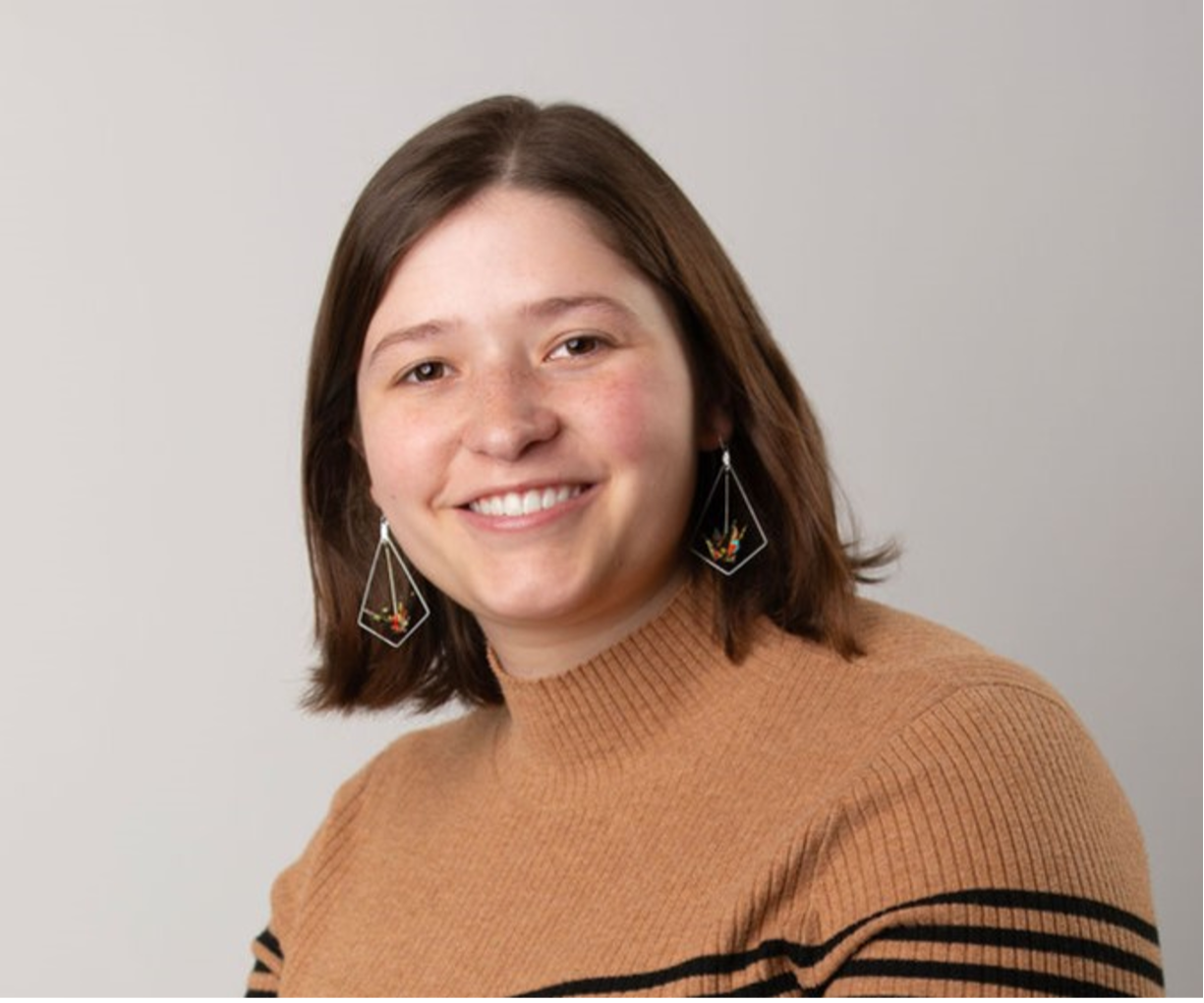
Carson Crane
University of Minnesota
Research Coordinator

Eden Wetzel
University of Southern California
Domain Coordinator
The Methods team focuses on key statistical and methodological issues that pose important challenges to research on Alzheimer’s disease and related dementias (AD/ADRD) and the exposome across the six substantive GECC exposome domains.
Research in this area is cross-cutting, multidisciplinary, and collaborative, focusing on topics impacting multiple domains, including the appropriate measurement of exposome domains, and the development and use of appropriate models to describe the associations between exposures and AD/ADRD outcomes.
The Methods core has three overarching aims:
Estimates of various exposures, such as air quality or access to healthcare services, are often based on imperfect data. The methods team will focus on comparing, assessing, and developing a range of approaches to reduce bias and increase precision of estimates in the presence of many of the commonly occurring data challenges across substantive domains.
Though research often focuses on one exposure at a time, individuals exist in a complicated world and are constantly faced with multiple, potentially interacting, exposures. Understanding and developing the optimal approaches for capturing and modeling these interactions is an important methodological topic.
There are many possible sources of bias or reasons why a study may get the wrong answer. Issues around who is in the study (selection bias) or the quality of measurement (measurement error) are important topics that the Methods team will explore. Additionally, understanding how to synthesize evidence and triangulate findings across different types of studies can help in reducing risk of bias.
In the fall of 2024, the GECC hosted a series of town hall meetings with hundreds of unique participants. These meetings yielded critical insights for the Methods domain, including highlighting key themes and gaps in research. Even among conversations that focused on specific exposome domains, such as the social environment, questions related to methodological approaches were pervasive throughout discussions.
Key Themes
Gaps in Research

Emma Nichols
University of Southern California
Epidemiologist & Domain Lead

Kayleigh Keller
Colorado State University
Biostatistician

Yao-Yi Chiang
University of Minnesota
Computer Scientist

Erik Meijer
University of Southern California
Economist

Birgit G. Claus Henn
Boston University
Environmental Epidemiologist
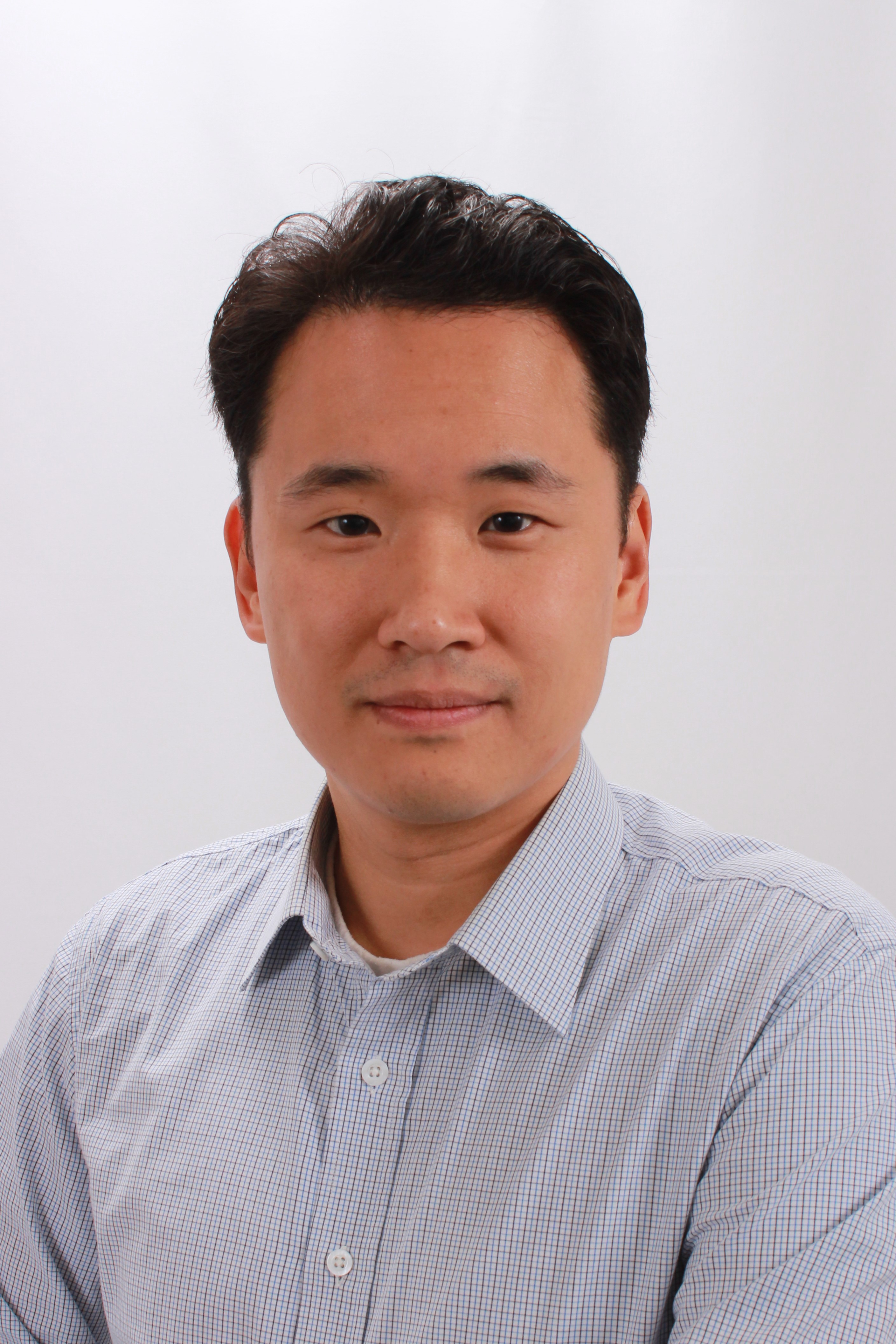
Howard Chang
Emory University
Biostatistician

Adam Szpiro
University of Washington
Biostatistician
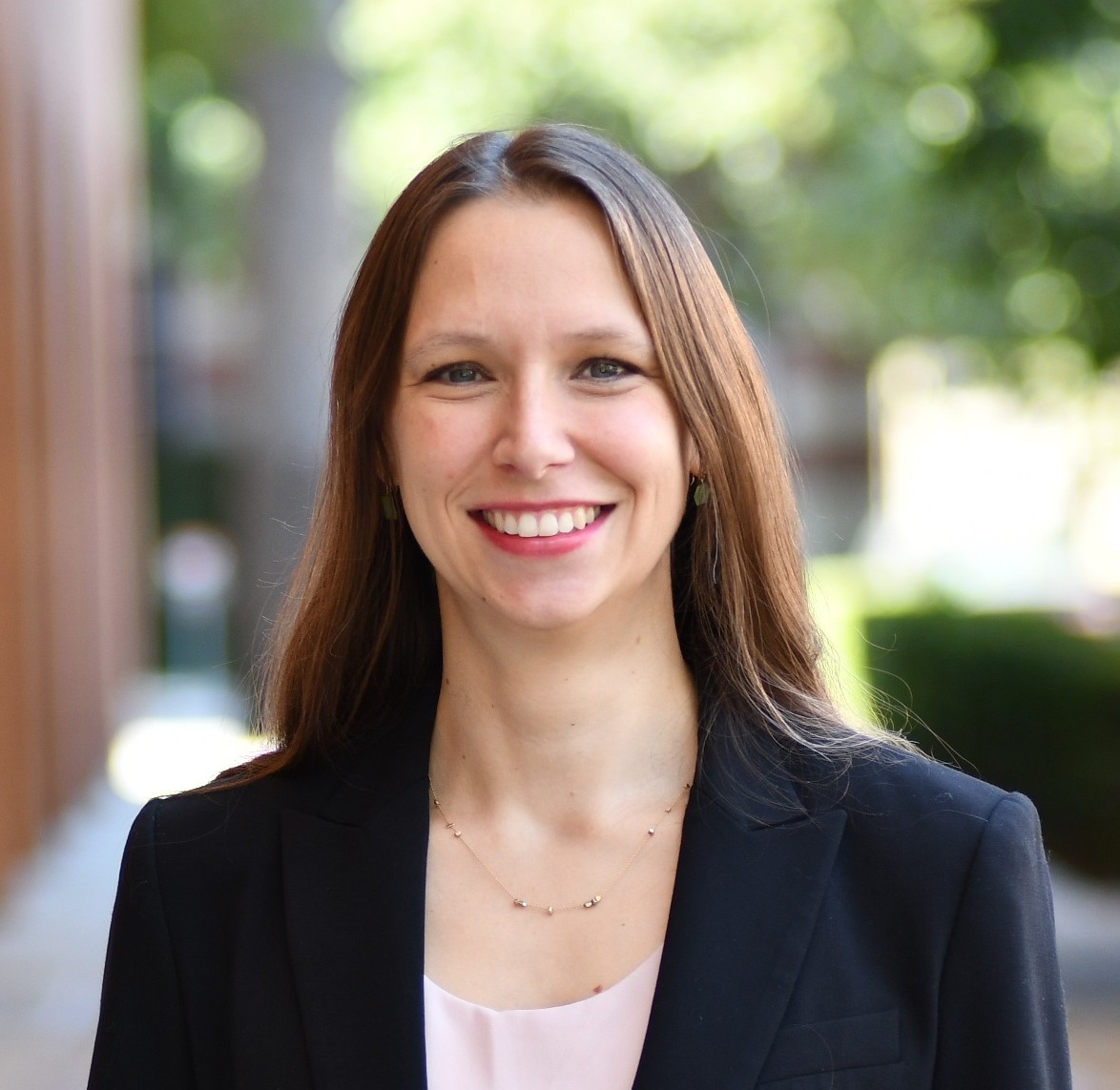
Eleanor Hayes-Larson
University of Southern California
Epidemiologist

Jennifer Weuve
Boston University
Epidemiologist
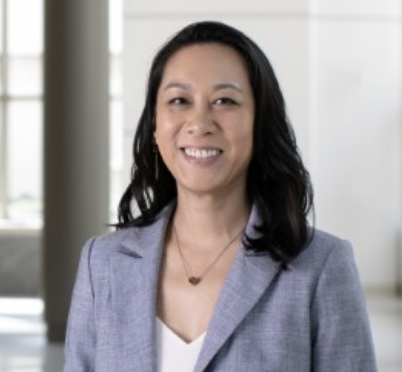
Regina Shih
Emory University
Epidemiologist
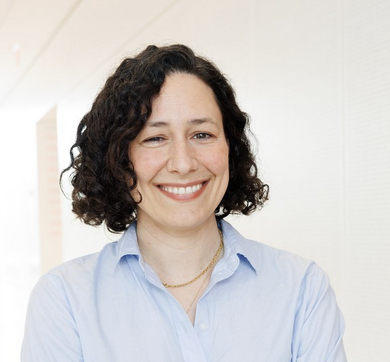
Katrina Kezios
Boston University
Life Course Epidemiologist

Eden Wetzel
University of Southern California
Domain Coordinator
The Social Environment domain encompasses a person’s workplace, neighborhood, society, and groups to which they belong. These social ties and forces can be characterized by how people relate to each other and the structures of the community. The social environment is composed of and created by individuals, but is also more than the sum of individuals in a given context.
The Social Environment domain’s initial efforts will focus on residential contexts, relational processes, and the workplace.
Relational processes encompass the dynamic ways individuals and groups interact, influence each other, and shape social structures over time. These processes are foundational to how relationships are formed, maintained, and changes in various social contexts.
The study of relational processes includes topics like social networks, social capital, social cohesion, social isolation, social connectedness, collective efficacy, and social support. The social environment domain is especially interested in exploring mechanisms linking these facets of relational processes to cognitive again.
Residential context refers to the physical layout and its overlap with the social composition of cities, towns, and neighborhoods – this includes, for example, the ways that roads may connect or divide places and the economic composition of a given place.
These characteristics represent the complex ways different groups of people cluster together in response to civic and private influences, both positive and negative. Research about residential context of the social environment has traditionally focused on residential neighborhoods where people live but has recently expanded to also study “activity space” where people work and gather.
The workplace is a critical social environment for most people throughout their lives, but there is a paucity of research investigating how the social dimensions of labor and occupation — such as workplace structures and exposures, as well as social patterning of risk or job insecurity in precarious work — confer risk or resilience when it comes to cognitive aging.
In the fall of 2024, the GECC hosted a series of town hall meetings with hundreds of unique participants. These meetings yielded critical insights for the Social Environment domain, including highlighting key themes and gaps in research.
Key Themes
Gaps in Research
To address these priorities and facilitate a better understanding of the relationship between the exposome and AD/ADRD outcomes, the Social Environment domain will leverage existing measures as well as develop novel measures.
Overview
Social Isolation & Cohesion
Work
Residential Context

Margaret Hicken
University of Michigan
Domain Lead

Reed DeAngelis
University of Michigan
Domain Investigator
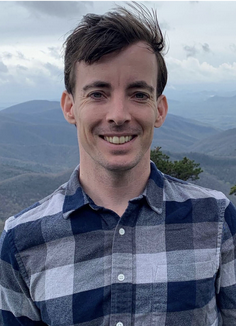
David Rigby
University of Michigan
Domain investigator

Lindsey Burnside
University of Michigan
Domain investigator

Angela Bruns
Gonzaga University
Domain Expert
Work, precarious labor, spatial measures

Sarah Burgard
University of Michigan
Domain Expert
Work, occupation, aging

Rachel Donnelly
Vanderbilt University
Domain Expert
Work, employment, aging

Jessica Finlay
University of Colorado Boulder
Domain Expert
Residential context, aging
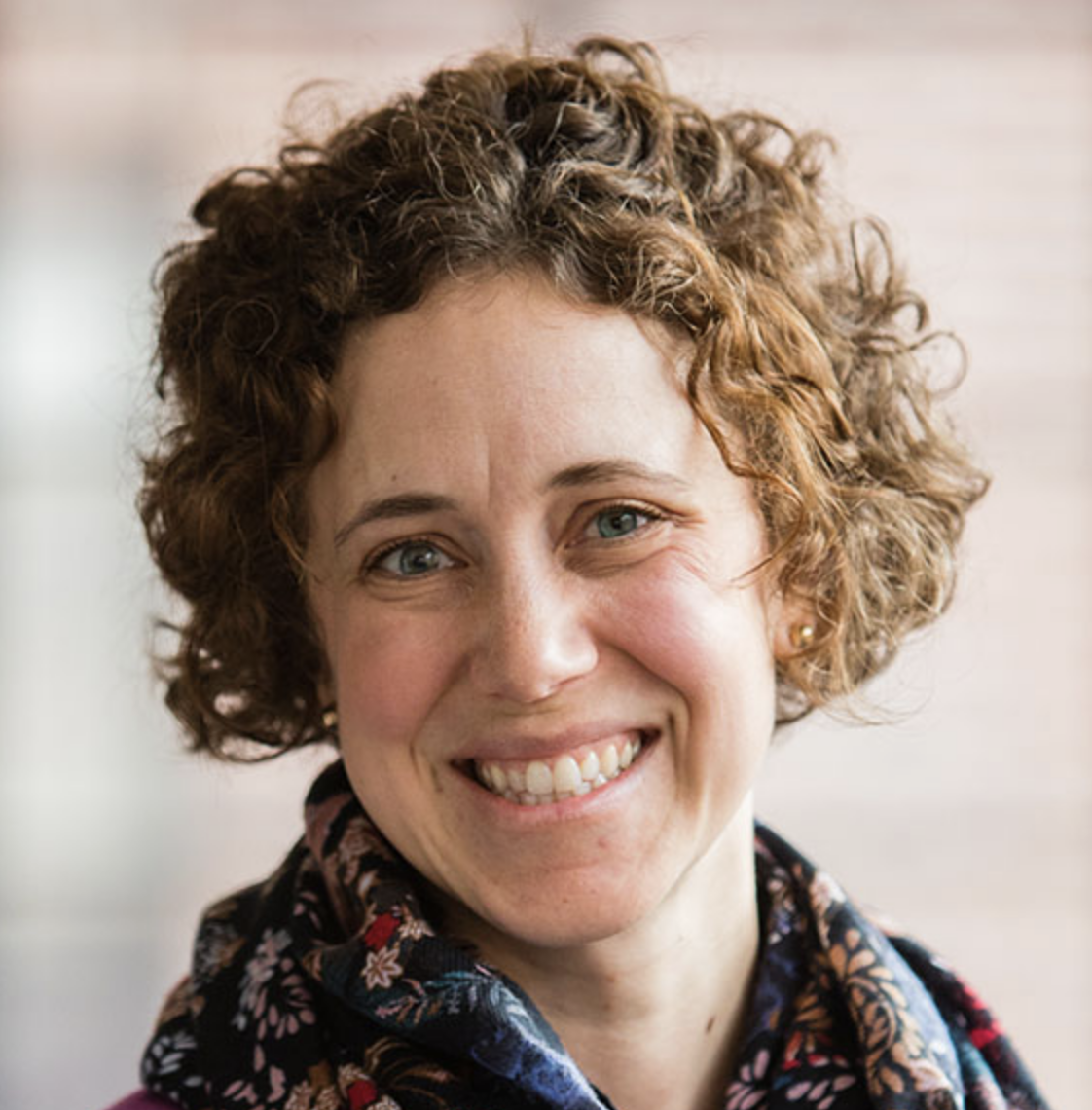
Carrie Henning-Smith
University of Minnesota
Domain Expert
Residential context, rural context, social connections
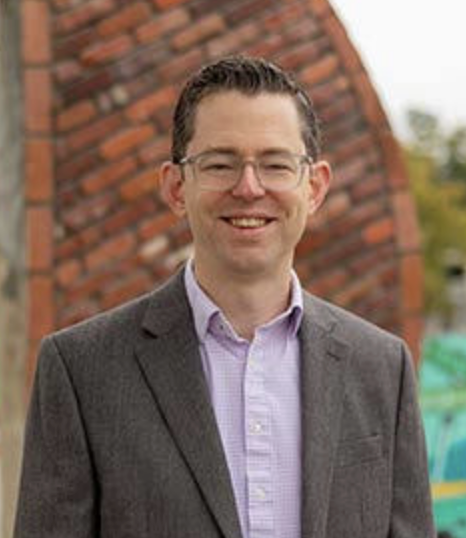
Brian Levy
University of South Carolina
Domain Expert
Residential context, urban context, spatial measures
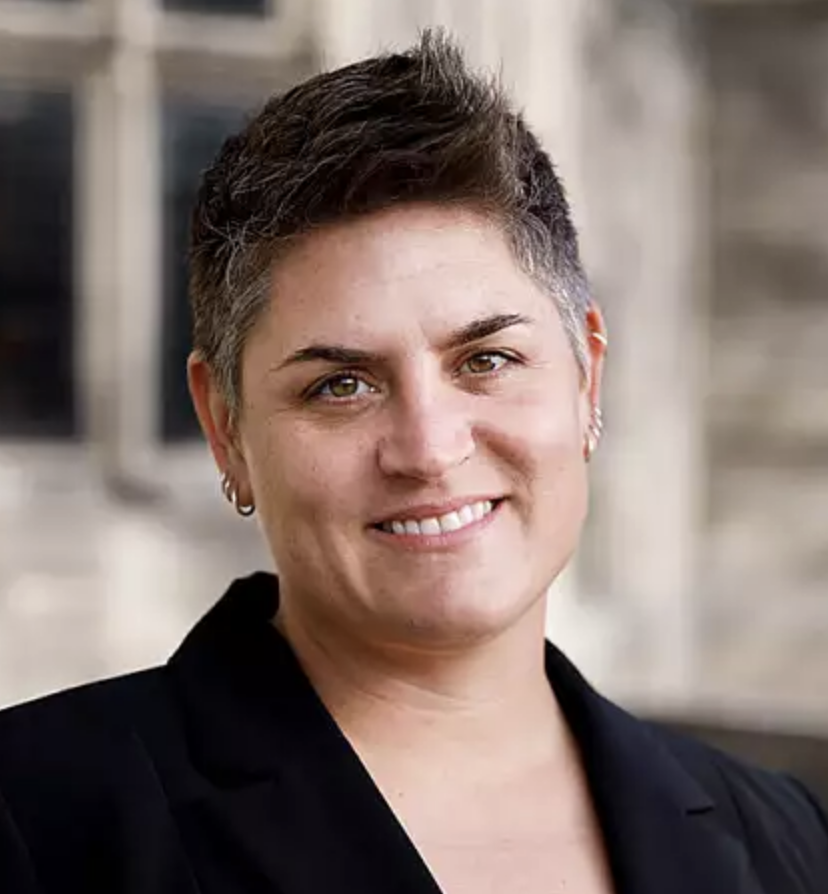
Brea Perry
Indiana University
Domain Expert
Social connections, social isolation

Liz Roberto
Rice University
Domain Expert
Residential context, neighborhoods, spatial measures
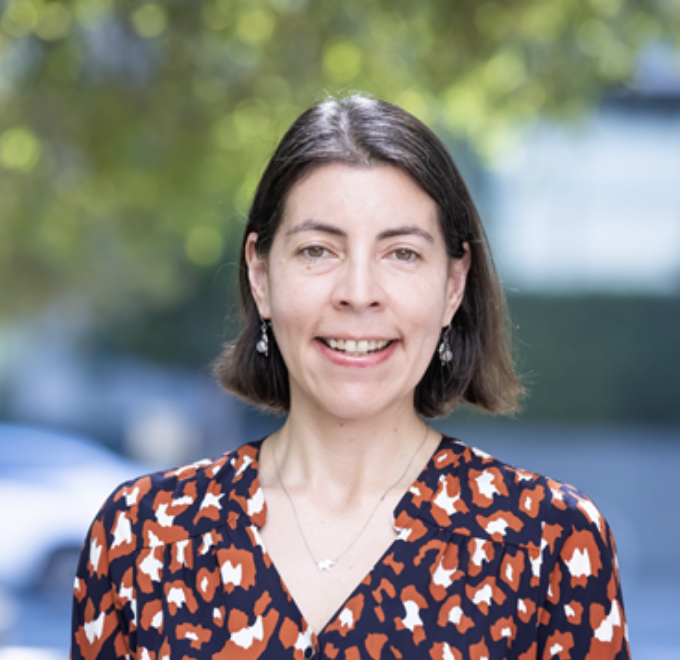
Stacy Torres
UC San Francisco
Domain Expert
Residential context, social connections, aging

Deb Umberson
UT Austin
Domain Expert
Social connections, social isolation, aging
The Extreme Weather domain considers a wide range of factors that affect aging, including rising outdoor temperatures and increasing risk of
extreme weather events such as wildfires, flooding, and extreme heat. The Extreme Weather domain seeks to accelerate the pace of research on these
topics by providing the scientific community with guidance, advice, and access to innovative data and resources.
The Extreme Weather domain’s initial efforts will focus on extreme weather events, exposome research, population resilience, and long-term exposures to heat.
Extreme weather events — such as wildfires, floods, and heat waves — pose significant risks to both mental and physical health
in aging populations. Older adults face heightened vulnerability to these events due to factors like reduced mobility, preexisting
conditions, and social isolation, which can hinder response and recovery.
Beyond immediate dangers such as respiratory distress, heat-related illness, and injuries, repeated exposures may have
lasting effects on brain health. Air quality, extreme heat, and disaster-related stress have been linked to cognitive decline,
neurodegenerative risk, and worsening mental health. More research is needed to understand these mechanisms and develop
strategies to protect older adults from the cumulative impacts of extreme weather.
Addressing environmental health risks requires innovative research that spans all of the GECC domains that are traditionally siloed. Multidisciplinary groups like GECC are well-suited to accelerate the pace of research by prioritizing key research questions, creating globally consistent markers of exposure to hazardous weather, advising on the use of novel exposure metrics, and facilitating translation of research insights into community- or region-specific interventions.
While all individuals and communities face risks from hazardous weather exposures, some are more able to mitigate risks or respond to harmful exposures. Further research is essential to understand how exposures and impacts of hazardous weather and disasters vary across individuals, locations, and time, to enable the development of effective interventions tailored to the needs of specific communities.
Chronic exposure to high temperatures and the urban heat island effect can pose unique risks to cognitive and mental health in older adults. In addition to acute events, these exposures may operate through slower, cumulative pathways. More research is needed to better understand how the cumulative impacts of environmental stressors influence the risk of dementia.
In the fall of 2024, the GECC hosted a series of town hall meetings with hundreds of unique participants. These meetings and additional conversations with domain experts yielded critical insights for the Extreme Weather domain, including highlighting key themes and gaps in research.
Key Themes
Gaps in Research
Overview
Acute Environmental Disasters
Temperature Extremes & Heat Islands

Gregory Wellenius
Boston University
Domain Co-Lead

Kevin Lane
Boston University
Domain Co-Lead

Allison James
Boston University
Research Fellow

Lucy Hutyra
Boston University
Domain Expert

Emma Gause
Boston University
Research Scientist
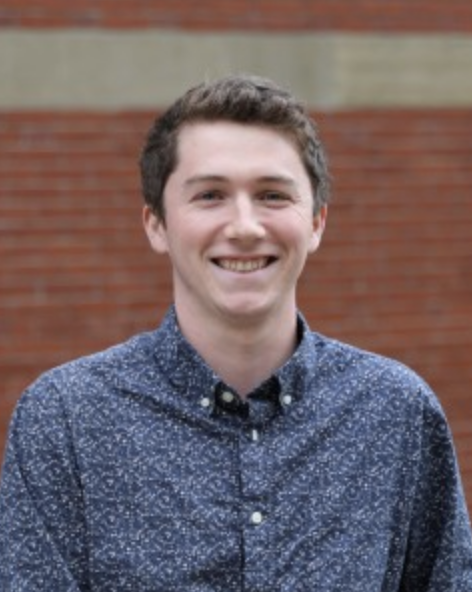
Zach Popp
Boston University
Research Data Analyst

Talia Feldscher
Boston University
Research Fellow
The Physical Environment domain studies the natural and human-built features that impact people’s lives, health, and well-being. For
instance, air and noise pollution pose risks, while other physical environment features like greenspace and infrastructure are beneficial
to health. Research in this domain aims to develop exposome data that characterize these risk and resillience factors and better explain
their relevance to Alzheimer’s disease and related dementia (AD/ADRD).
The Physical Environment domain’s initial efforts will focus on air quality, green spaces, and neighborhood characteristics.
Air pollution is composed of multiple gases and particles of distinct chemical composition, depending upon the source of the pollution. Pollution has many effects on the body, and some types of particles are increasingly being linked with neurodegenerative diseases. Continued progress in controlling emissions – particularly those related to sources contributing most to exposure and having the greatest impact on brain health – can help reduce the development and progression of AD/ADRD.
Green space refers to natural environments within urban or rural settings, like parks, community gardens, and forests. The influence of green space on brain health is multi-faceted but generally positive. In urban environments, for example, green spaces can reduce exposure to air and noise pollution. Safe, accessible green spaces can also promote physical activity and social interaction, while spending time in and even near larger, biodiverse natural spaces benefits mental health. The Physical Environment domain is also interested in studying how the quality of green spaces can meet basic needs to maximize its potential benefits.
Neighborhood characteristics such as employment, education, recreation, healthcare, nutritious food, and culture help meet daily needs, which can lead to healthier lifestyle choices. Therefore, planning or zoning the physical layout of cities and neighborhoods is a crucial to promoting well-being. Bike and walking paths, shaded, safe and attractive routes, benches to rest and rewarding des- tinations can encourage less motor vehicle use for all ages. It can be challenging for all needs to be accessible within a short com- mute, but more offerings translate into more opportunities to make healthier choices part of daily living. Measuring these neigh- borhood features to explore what works best for sustaining wellness in aging may result in reduction of AD/ADRD outcomes.
Noise can refer to both harmful (e.g., traffic) and helpful (e.g., birdsong) sounds, and it has been shown to affect brain health. Measuring noise and sound levels to reflect stress pathways, the potential for sleep disturbance, and as a restorative agent, can help researchers better understand its role in the risk or resilience of AD/ADRD.
In the fall of 2024, the GECC hosted a series of town hall meetings with hundreds of unique participants. These meetings yielded critical
insights for the Physical Environment domain, including highlighting key themes and gaps in research.
It was also apparent in the town halls that the Physical Environment domain connects directly and indirectly with many other domains’
interests.
Key Themes
Gaps in Research
To address these priorities and facilitate a better understanding of the relationship between the exposome and AD/ADRD outcomes, the Policy Environment domain will leverage existing measures as well as develop novel measures.
Short-Term Priorities
Long-Term Priorities

Jeffrey Brook
University of Toronto
Domain Co-Lead

Michael Brauer
University of British Columbia
Domain Co-Lead

Dany Doiron
University of Montreal
Domain Expert
The Gateway Exposome Coordinating Center (GECC) is seeking pilot projects that advance research on the various environmental exposures over the life course — known as the “exposome” — that affect Alzheimer’s Disease (AD) and AD-Related Dementias (ADRD) risk, resilience, and disparities. The GECC anticipates selecting between 3-6 proposals to receive between $32,000-60,000 each (including indirect costs).
Pilot projects should support the GECC’s mission to improve knowledge and understanding of AD/ADRD, driving policy changes, and providing better data for future research. The most competitive pilot projects will create novel measures, data sets, or data guidance for exposome research. Projects may be related to or build on one or more of the six GECC domains of study: extreme weather, physical environment, social environment, policy environment, community services environment, and life experiences. Pilots focused on methodological topics cutting across multiple substantive domains are encouraged. If you have questions about whether your project is a good fit for the GECC, please contact us at pilots@gatewayexposome.org.
Proposal Due Date:
April 13, 2026
Project Period:
August 1, 2026–July 31, 2027
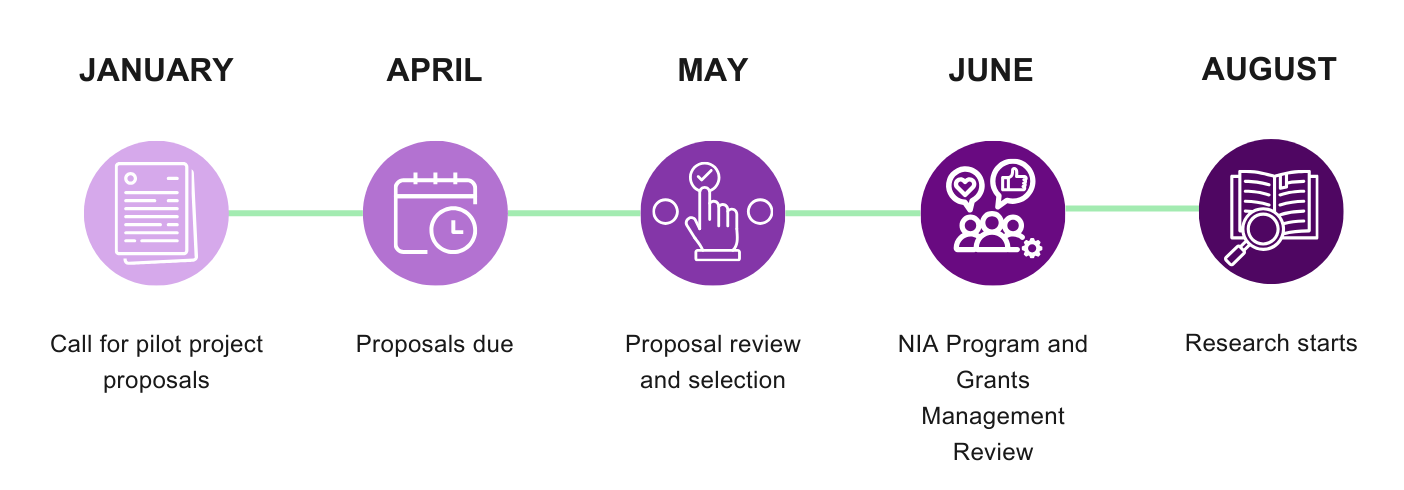
We welcome pilot studies across disciplines and from researchers at any stage of their career and background, especially from investigators transitioning into AD/ADRD research, researchers from less traditional disciplines than those that normally engage in AD/ADRD research, and those working with underrepresented groups.
Proposals must be submitted by U.S.-based applicants. We welcome proposals from public and private non-profit organizations, institutions of higher education, hospitals, and non-profit research institutes.
Applicants should submit all materials using this Google Form application. Submissions through the form require a Google account. If you have any issues, please contact us at pilots@gatewayexposome.org. To complete the application, please prepare:
Applicants will be notified of funding decisions in June 2026.
Are graduate students and postdocs eligible to receive GECC pilot funding?
Yes, we welcome pilot studies across disciplines and from researchers at any stage of
their career.
Are international (non-U.S.) applicants eligible to receive GECC pilot project funding?
No, applicants must be U.S.-based.
Does the $60,000 budget include indirect costs?
Yes, pilot budgets may not exceed $60,000 and this must include indirect (i.e. overhead
or F&A) costs. The feasibility of a project is considered during the review process — the
scope of the pilot project should be appropriate for the requested budget.
May I sponsor labor for a research assistant, graduate student, or consultant with pilot project funds?
Yes, a portion of pilot project funding for a given study can be used to cover labor
expenses.
For other questions about the application process, please email pilots@gatewayexposome.org.
2024 GECC Town Hall Overview
In the fall of 2024, the GECC hosted a series of town hall meetings with nearly 300 unique participants from 130 organizations across 21 countries. These meetings yielded critical insights that will guide the GECC’s efforts over the next five years. These insights will help prioritize research areas where the GECC will create new resources and tools for researchers studying the exposome and its impact on brain health.
The GECC’s first town hall meetings on October 9th were a resounding success, bringing together 127 participants from 64 organizations across 13 countries to generate insights on the influences of brain health as people.
Participants discussed themes including:
The November town halls brought together 129 participants from 60 organizations across 12 countries.
Participants discussed the following topics:
The final set of town hall meetings for the year had 113 participants from 55 organizations across 10 countries.
Participants discussed the following topics:
There were many shared themes across the town halls that were salient to all GECC domains. Three of the most resounding, overarching themes were (1) interdisciplinary collaboration, (2) innovative methodologies, and (3) development of novel measures.
In addition to these shared takeaways, each domain identified key areas of focus for their future research.
Download the notes from all of the town hall meetings
The town halls allowed participants the opportunity to discuss what is most important to them. Hosted virtually on Zoom, participants began by suggesting key factors that may influence our communities’ risk of, resilience to, and disparities in Alzheimer’s and dementia. Breakout sessions then formed around these topics for participants to have focused discussions. Collaborative notes were taken so that these discussions will help guide participants and the GECC to set priorities for future scientific research and policies related to brain health.
The GECC will host another round of town hall meetings in 2027 to review progress on our initial priorities and identify any new priorities that have arisen in the interim.
Read about the latest updates, releases, and announcements from the GECC.
After a review process, the Gateway Exposome Coordinating Center selected five pilot projects from a pool of 63 applications to receive funding this cycle. The selected projects include:
The National Institute of Aging (NIA) recently published a “2025 NIH Alzheimer’s Disease and Related Dementias Research Progress Report: Advances and Achievements,” featuring the Gateway Exposome Coordinating Center (GECC).
The report spotlights GECC's work fostering collaboration and accelerating life course research on the social, behavioral, psychological, and economic exposures that shape Alzheimer’s and related dementias outcomes. It highlights the Center’s interdisciplinary work and its efforts to produce accessible, quality data for AD/ADRD researchers.
To read the full mention of the GECC, you can
access the full report on the NIA’s website and navigate to the “Spotlight: Social determinants of health and the exposome” section.
Alzheimer's & Dementia and the Gateway Exposome Coordinating Center (GECC) invite submissions for a special issue dedicated to interdisciplinary research on the exposome and Alzheimer's Disease (AD) and AD-Related Dementias (ADRD) risk, resilience, and disparities. This special issue will include research articles, short reports, review articles, and policy forums on the emergent, growing field of exposomics, focusing on how an expansive conceptualization of the exposome — the various environmental exposures over the life course — influence brain health and dementia outcomes.
Submissions are encouraged to explore sources of risk including, but not limited to, the physical, chemical, natural, social, political, and economic dimensions of the exposome and their interplay with each other. Papers in the special issue will advance and complement the GECC’s mission of facilitating collaboration and consensus-building across disciplines, and serving as a hub for interdisciplinary exposome research, deepening our understanding of risk and resilience for AD/ADRD.
Submissions open July 1, 2025. The submission deadline is March 31, 2026. All papers will undergo peer review and are subject to the standard author guidelines.
On March 10-13, 2025, the Gateway Exposome Coordinating Center (GECC) convened over 80 experts in Los Angeles, California to set research priorities in exposome science and its intersection with Alzheimer's Disease (AD) and AD-Related Dementias (ADRD).
The workshop’s primary goals were to identify gaps in AD/ADRD and exposome literature and, from these gaps, select priority focuses to guide the GECC’s future outputs. To address these goals, the GECC workshop leveraged interdisciplinary collaboration. Throughout the week, researchers from different domains and disciplines intermingled to discuss priorities and share methodological approaches. This structure ensured that the priorities that came out of the workshop were both informed by specialized expertise and enriched by multidisciplinary perspectives – reflecting the GECC's commitment to addressing the exposome as an integrated system rather than a collection of isolated domains.
Many of the initial gaps identified at the workshop’s outset and during subsequent discussions require innovations in how exposome data is produced and shared. To address this central focus, the workshop developed plans to maximize its reach through high-impact publication, sharing resources through open-access data platforms, and targeted engagement strategies for training and dissemination of research products.
Overall, the GECC workshop was a testament to the power of interdisciplinary collaboration, bringing together experts across aging research, social and environmental sciences, and public health to advance exposome science. The workshop laid the groundwork for a research agenda that is both ambitious and pragmatic, recognizing the complexity of exposome science while identifying concrete steps to advance the field.
In the fall of 2024, the GECC hosted a series of six town hall meetings to build consensus from experts and other stakeholders on what topics are the most important for those studying Alzheimer's Disease and related dementias (AD/ADRD) and the exposome. Bringing together nearly 300 unique participants from 130 organizations across 21 countries, these meetings yielded critical insights that will guide the GECC’s efforts over the next five years. These insights will inform priority research areas for the GECC to create new resources and tools for researchers studying the exposome and its impact on brain health.
Hosted virtually on Zoom, participants began by suggesting key factors that may influence our communities’ risk of, resilience to, and disparities in Alzheimer’s and dementia. Breakout sessions then formed around these topics for participants to have focused discussions.
There were many shared themes across the town halls that were salient to all GECC domains. Three of the most resounding, overarching themes were (1) interdisciplinary collaboration, (2) innovative methodologies, and (3) development of novel measures. In addition to these shared takeaways, each domain identified key areas of focus for their future research.
Collaborative notes were taken, and made publically available for download, to ensure that these discussions will help guide participants and the GECC to set priorities for future scientific research and policies related to brain health.
The GECC will host another round of town hall meetings in 2027 to review progress on our initial priorities and identify new priorities that have arisen in the interim.
The GECC’s first town hall meeting on October 9th was a resounding success, bringing together 127 participants from 64 organizations across 13 countries to generate insights on the influences of brain health.
Participants discussed themes including:
Feedback from participants will directly inform the GECC’s future efforts, helping us prioritize research areas, create new resources, and develop tools that will benefit the broader community.
To engage with the GECC’s future activity be sure to:
Register for our future town hallsThe ambitious project will study influences on dementia risk and resilience as varied as pollution, education and policy.
Backed by a $25 million, five-year federal grant from the National Institute on Aging, USC’s Center for Economic and Social Research (CESR) is launching an ambitious investigation into the complex matrix of factors that feed into developing — or being protected from — Alzheimer’s and other related forms of dementia.
This matrix, or “exposome,” refers to all environmental exposures and corresponding biological responses experienced by an individual throughout his or her life.
Exposome research examines risk and resilience influences as varied as pollution, education or policy, with the goal of understanding how resulting biological changes may lead to disease. For example, previous research at USC has shown that exposure to fine-particle pollution, or PM2.5, leads to Alzheimer’s-like brain changes in humans. Other research shows how education may improve the brain’s ability to withstand damage that leads to dementia.
Understanding Alzheimer’s “exposome” is “increasingly urgent”
“Understanding how these exposures impact health and contribute to Alzheimer’s disease is increasingly urgent as the global population ages,” said principal investigator Jinkook Lee, director of the program on global aging, health and policy at CESR. CESR is based at the USC Dornsife College of Letters, Arts and Sciences.
Lee’s project, known as the Gateway Exposome Coordinating Center (GECC), will spearhead development of enhanced data and collaboration across disciplines to identify which aspects of the exposome affect dementia risk and how these can be mitigated.
“This center is an excellent exemplar that interconnects several of USC’s ‘moonshots’ — from health and computing to sustainability. This center further expands on other efforts of this team on the global stage such as the Longitudinal Aging Study in India, another USC priority,” said Shrikanth “Shri” Narayanan, vice president for presidential initiatives at USC.
“Efforts such as Lee’s exposome project have positioned USC at the top of U.S. universities in National Institutes of Health neuroscience awards,” said Ishwar K. Puri, senior vice president of USC’s Office of Research and Innovation. “With cutting-edge international collaborations and four prominent research centers, we believe we can get out in front of Alzheimer’s and prevent or stall the disease.”
The GECC’s efforts will bring together leading researchers from USC and other institutions, alongside key government agencies such as the Department of Health and Human Services, the National Institutes of Health and the Environmental Protection Agency. This interdisciplinary collaboration is crucial for identifying priority areas and shaping future research in the field, Lee said.
“Collaboration is a cornerstone of the GECC,” said David Knapp, a senior economist at CESR who is co-leading the project with Lee and Sara Adar from the University of Michigan. “We are fostering consensus-building among researchers and stakeholders from diverse fields, ensuring a broad, inclusive approach to understanding the exposome’s role in dementia.”
Expanding long-running data project
The GECC project is an expansion of the Gateway to Global Aging Data, a long-running project with $24.7 million federal grant from the National Institute on Aging. The Gateway to Global Aging Data is a public resource for longitudinal and cross-national studies on aging over 42 countries around the world, offering data, information and tools to stimulate global aging research.
The GECC project joins another recently launched, large-scale collaboration on Alzheimer’s and dementia that is also anchored at USC.
Julie Zissimopoulos, a professor at the USC Price School of Public Policy and the USC Schaeffer Center for Health Policy & Economics, is leading an effort to build a dementia cost model that will generate comprehensive national, annual estimates of the cost of dementia. The project, funded by an $8.2 million grant from the National Institute on Aging, could benefit patients and their families.
To contact us, email us at: contact@gatewayexposome.org
Contact us at contact@gatewayexposome.org
The GECC is funded by the National Institute on Aging (NIA) U24AG088894.
The social environment includes a person's workplace, neighborhood, society, and groups to which they belong. It can be characterized by how people relate to each other and the structures of the community. Features of social processes include things like social connections, support networks, and trust among people. Many of these factors are linked to health conditions associated with dementia like hypertension and cardiovascular diseases, but more research is needed to understand how they affect brain health. The Social Environment domain is led by Dr. Maggie Hicken (University of Michigan).